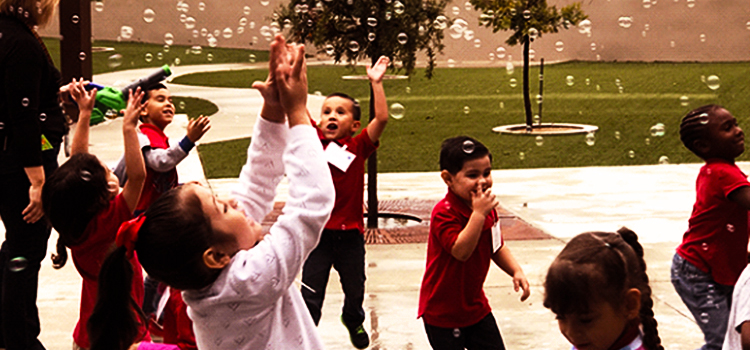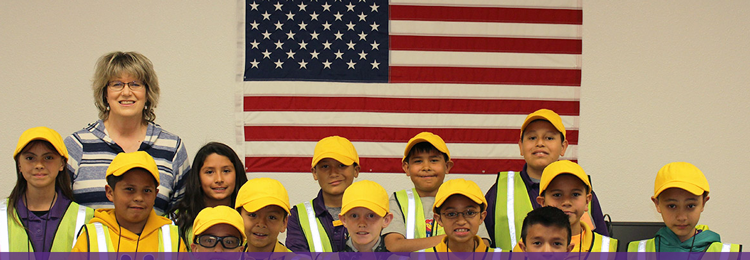Posts by Dr. Theresa Kyle
Posted on

This week is American Education Week and we have much to celebrate! We celebrate educators who are working hard to meet all levels of student need. You can multi-task to create rigorous curriculum opportunities as well as plan empowering social-emotional learning activities. The care you have for students drives positive relationships. You realize that students come from all different circumstances, and every student needs someone who believes in him. You are TEACHers! If you agree, do you feel like celebrating or do you sometimes feel like you are losing steam? You may sense that teaching is always changing, and you feel swept up in an unfamiliar dynamic.
Balancing curriculum and social-emotional learning
This is unfamiliar territory for many teachers as we are not used to teaching social-emotional skills. We all agree though, that it is essential and even fun to do so. Why the worry and why the resistance? Because change is difficult, albeit inevitable. Our resistance is not so much about the assumption that social-emotional learning is a vital new component of teaching than it is about our own feelings. Thankfully, we can change the way we feel. We need to realize that our role is a helper role. When we help learners, we are fulfilling our destiny. Be happy, grateful and thankful that we are exactly where God wants us to be at this precise moment.
Building positive relationships
Certainly, 100% of teachers would agree that positive relationships are key, but many students who need us most are the most difficult to reach. This requires a teacher mindset that is willing to reflect and change. Change is difficult, and people resist it. If you are using a student’s bad behavior as the reason you cannot develop a positive relationship with him, then you are only seeing the behavior, not the student.
We cannot develop a relationship with a behavior; we can only develop a relationship with a person.
Do you know what that student likes or is passionate about? If you don’t know, then you haven’t yet begun the work of developing a positive relationship with him or her. Give yourself and your student some time, and cultivate the relationship just like a seed in a flower pot.
Students come from all different circumstances
Every student needs someone who believes in him. This is a call is worth celebrating! God has put us in charge of carrying this out for our students. Of course, it may be difficult to believe in a kid who doesn’t believe in himself, but this is our greatest calling and it is our highest honor.
Teachers do have a lot on their plates, it’s true. Sometimes we feel overwhelmed by an ever-increasing variety of challenges. But we also have an excellent sense of what we need to do, how we need to do it and why we need to do it. We have an important mission for every student in our care.
Remember - we have the brains, power and creativity to succeed!
Posted on

I am a behavior intervention specialist/special education co-teacher at an elementary school and teach Master of Education Special Education courses at Northwestern College. Throughout my years of working with different students, I’ve been able to help many students, teachers, and parents better understand learning behaviors and ways to promote healthy and positive responses for learning. As you read this email I received from a cooperating counselor, you may be able to connect the situation to one of your own student’s behavior.
Good Afternoon Dr. Kyle,
My name is Ms. A.; I'm John’s (fictitious names) counselor at B. Middle School. John’s mom indicated that you found a way to positively motivate John. His behavior is "OK" at this point. We conferenced with mom last week and she suggested that we communicate with you about strategies that you utilized that helped John succeed. Our biggest concern is that he is NOT working in his classes. He is beginning to resist by crying and being incredibly negative. He's a wonderful young man, with a beautiful smile and we want to help him feel successful. Your help would be greatly appreciated.
This was my response:
One of the most important things to do for John is to build a cooperative relationship with him - he will not participate at all unless he feels some kind of positive connection. He loves to be called on and noticed for his verbal contributions, and he is exceptionally well-spoken with a great vocabulary. His accommodations should include numerous ways to allow him to participate verbally, and speak into a voice-to-text type of machine or app. He will be able to participate very meaningfully because he is very bright, however this won't look like the normal, 'sit-and-get' strategy that teachers probably expect. I would begin by making sure that John is in co-teaching classrooms with flexible, creative teachers who are willing to think out of the box. Just sending John out of the gen ed. classroom to do the very same thing with the sped teacher is not an option.
Because John is smart and well-spoken, but impatient, he will have trouble relating to peers unless these peer-to-peer collaborative support relationships are structured by the teacher for success. If teachers assign John to a para or sped teacher, this could easily develop into a very non-productive, co-dependent relationship. When paired with one or two cooperative peers, John can be the “Materials Master” who checks to see if things are in order for the group. He can be the “Calculator Leader” in his group to check the math problems when the group has completed their task. He can be the “Praise Person” and reward his team with a Tic-Tac mint every time the team completes a step in the process of the lesson or the assignment. This helps him focus on the lesson, and it helps his team members keep him on task because they want that mint or reward!
"We need to structure the lesson so that he will be able to participate and feel successful. Right now, he feels inept and he knows that school is not the place where he feels smart or capable."
John is like most kids in that he loves to be a teacher-helper; he loves positive teacher attention. He used to sit at the computer and point to things that the teachers were discussing by moving the mouse around the screen to emphasize the part of the page she was discussing. He can manipulate pieces of a story and he can do math by dictating what the steps of the problem are. He can explain how things are done to another peer. There are lots of ways that he can show what he knows other than traditional work, so check with the specialist (the sped co-teacher) and plan to make tweaks in the lesson so that John can explain his thinking.
Basically, we need to structure the lesson so that he will be able to participate and feel successful. Right now, he feels inept and he knows that school is not the place where he feels smart or capable. Rather than get into a struggling match to make John fit into our mold of what we think middle school "work" should look like, we need to help him feel smart and capable by creating learning experiences that are structured to allow him to participate and show what he knows. As he grows in positive experiences, he will become stronger and more resilient.
Our classrooms and students are constantly changing. It's important to continue our education in behavioral strategies and trends for the many different situations that can be presented. As teachers, our ultimate goal is to inspire and encourage each of our students and prepare them for their bright futures. For more information about ways to broaden your educator skills, see the online Master of Education and endorsement programs.
